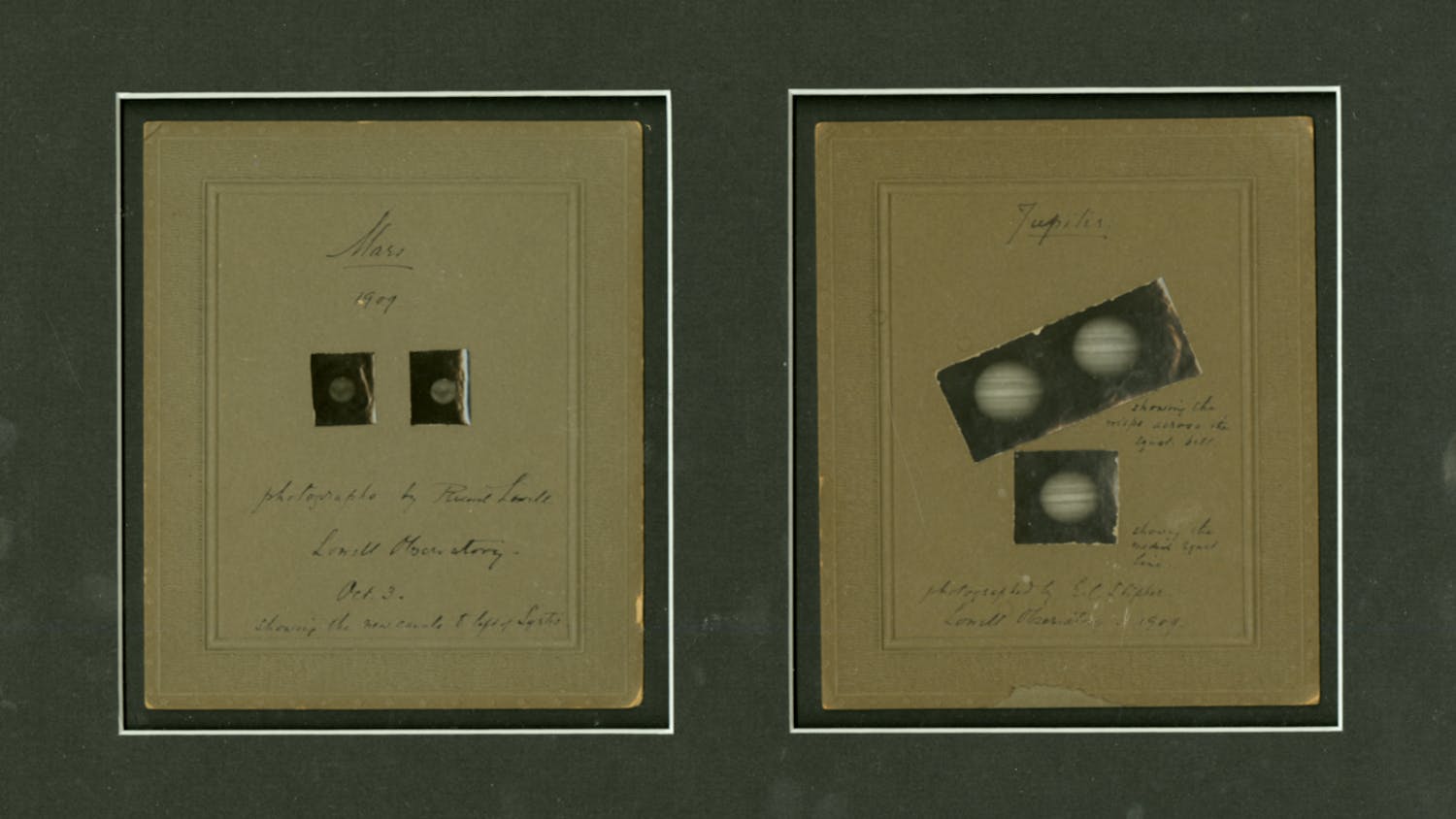Niche Reads: Novels for physics majors
If you struggle to find time for fun reading, this is the spot for you. Niche Reads recommends novels that relate to academic (or other) interests so you can explore a new book while still feeling productive. Check back each week for more cool books.
When science and literature collide, the results are almost always interesting. The three following works focus on physics, combining their scientific subject matter with the more subjective traditions of literature. They’re all relatively short, with unique humor being a hallmark of each.
While physics students might particularly like these pieces, they’re great for anyone who’s looking for a short, funny and thought-provoking escape from their schoolwork.
“Arcadia” by Tom Stoppard
Set in one room in the English countryside and alternating between the present day and 1809, “Arcadia” is a play about physics, humanity and destiny. In 1809, a precocious young girl develops a precursor to chaos theory, while her tutor, along with his unseen friend Lord Byron, finds himself embroiled in scandal. In the present day, two researchers try to decode that chapter of the house’s history. One focuses on an elusive hermit who lived on the grounds, while the other attempts to prove that Lord Byron killed a rival poet in a duel.
Full of wit and intrigue, “Arcadia” investigates, among many other themes, the relationship between reason and passion. How, it asks, can a mathematical model account for human irrationalities? Examining the unpredictability of sex, pride and anger, “Arcadia” is a compelling and at times absurd story, with a beautiful interplay between past and present.
Being a play, it’s a shorter time commitment than a novel and ideal for the busy physics student. Packed with witty dialogue and vivid characters, you’ll be glad you picked it up.
You should read this play if you like British humor, if you’re interested in the intersection of romanticism and reason or if you enjoy sharp dialogue.
“Project Hail Mary” by Andy Weir
In the near future, Dr. Ryland Grace wakes up alone on a spaceship. He doesn’t remember who sent him into space or why, but it certainly seems crucial that he figures it out, and quickly.
“Project Hail Mary” is a tight, exhilarating mystery. Without any spoilers, it’s hard to say much about the plot, but it is endlessly inventive and leans delightfully into the “science” side of science-fiction. If you’ve read “The Martian,” then you’re familiar with Weir’s style: funny, surprising and well-researched. While it’s longer than the other two books on this list, “Project Hail Mary” is a fun read that flies by.
“Project Hail Mary” will keep you on the edge of your seat. This book is one you don’t want spoiled, so you’ll have to trust that it’s worth the ride. Without saying too much, the main threat in this book is one of the most imaginative and entertaining adversaries you’ll find in science-fiction. Suffice it to say, the world’s at stake.
You should read this book if you like mysteries, if you appreciate humor in your books or if you’re interested in scientific mechanisms.
“Cat’s Cradle” by Kurt Vonnegut
If you haven’t yet read this classic book, the time is now. The narrator of “Cat’s Cradle” is on a mission to write a profile of Felix Hoenikker, the late creator of the atomic bomb. Quickly, however, he learns that Hoenikker also invented a compound called ice-nine, which has the power to instantly freeze anything it touches. What’s worse, small particles of ice-nine are loose in the world, in the hands of Hoenikker’s three children.
“Cat’s Cradle” is a short, ridiculous satire about science — particularly the use of science for destruction — and religion. In some ways, the novel has aged poorly, but it’s still a delicious read and a sharp social commentary. Some highlights include Vonnegut’s sense of humor and the imaginary religion of Bokononism.
With its brisk, memorable chapters, “Cat’s Cradle” will get you thinking without taking too much time from your studies. The idea of ice-nine, a fantastical seed crystal, should be especially captivating for physics majors.
You should read this book if you like satire, if you don’t mind some dark humor or if you’re looking for a quicker read.




